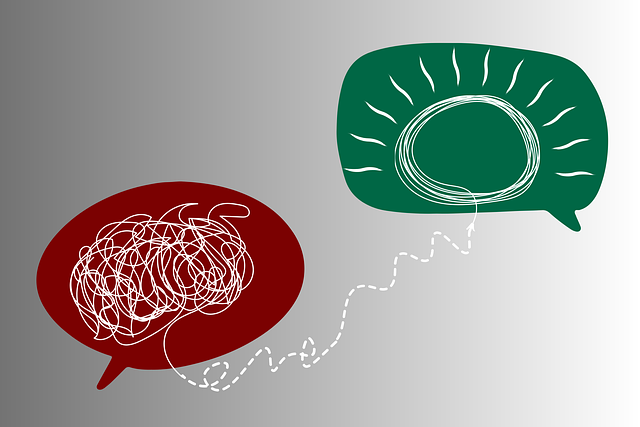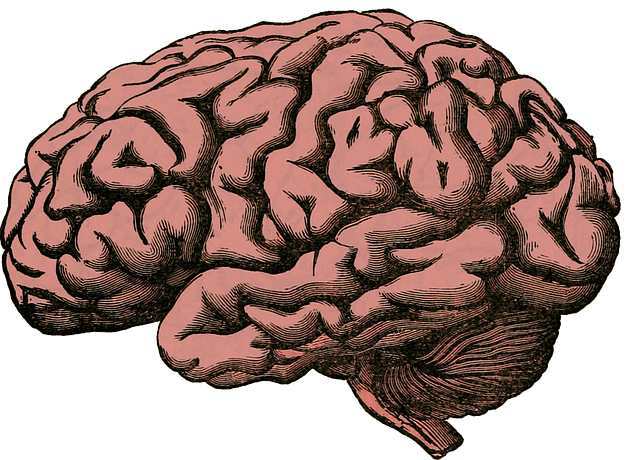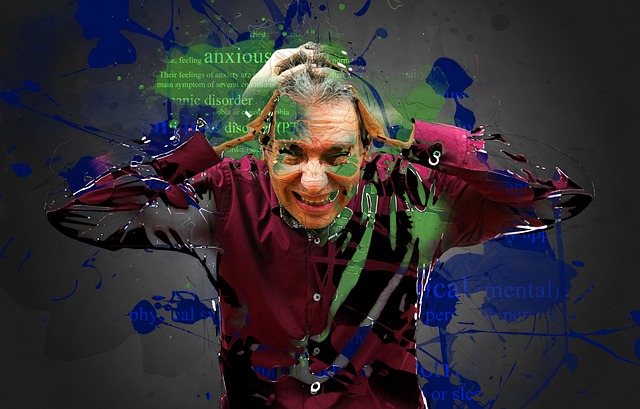Greenwood Village American Sign Language Therapy focuses on building mental resilience through its RFM (Resources, Fortitude, Motivation) framework. This structured approach enhances self-reliance by identifying personal strengths and developing effective coping strategies. Tailored therapy sessions include Mental Wellness Journaling and Resilient Focused Management exercises to manage stress and anxiety. The program measures success through qualitative and quantitative assessments, incorporating best practices for continuous improvement, ultimately empowering clients to thrive with improved emotional intelligence and positive mindsets.
Greenwood Village American Sign Language (ASL) Therapy is pioneering innovative resilience-building strategies using RFM (Resource, Strengths, and Motivation) exercises. This approach empowers individuals to navigate life’s challenges with enhanced adaptability. The article explores the transformative power of RFM within the therapy setting at Greenwood Village, delving into its benefits for clients and therapists alike. We’ll analyze implementation strategies, success metrics, and continuous improvement techniques, highlighting the impact on personal growth and well-being.
- Understanding RFM and Its Role in Resilience Building
- Implementing RFM Exercises at Greenwood Village ASL Therapy
- Benefits and Challenges of RFM for Clients and Therapists
- Measuring Success and Continuous Improvement Strategies
Understanding RFM and Its Role in Resilience Building

At Greenwood Village American Sign Language Therapy, we recognize that building resilience is a cornerstone of mental well-being. Resilience, the ability to adapt and bounce back from adversity, is crucial for navigating life’s challenges. That’s where RFM (Resources, Fortitude, and Motivation) comes in. This framework offers a structured approach to enhancing resilience by identifying personal strengths and fostering self-reliance.
By integrating RFM into our therapy practices, we guide individuals toward developing a robust Self-Care Routine Development for Better Mental Health. It equips them with tangible tools to cultivate emotional intelligence, strengthen coping mechanisms, and maintain a positive mindset even in the face of stress or trauma. Through targeted exercises, clients learn to access internal resources, build mental fortitude, and sustain motivation – key components that empower them to overcome obstacles and thrive.
Implementing RFM Exercises at Greenwood Village ASL Therapy

Greenwood Village American Sign Language (ASL) Therapy has been utilizing Resilient Focused Management (RFM) exercises to significantly enhance their clients’ mental health and wellness journey. These RFM sessions are designed to build inner strength, a vital component in navigating life’s challenges. By incorporating activities that foster resilience, the therapy center aims to empower individuals to cope with stress, anxiety, and other mental health concerns.
The implementation of RFM at Greenwood Village ASL Therapy involves tailored exercises that encourage clients to reflect on their experiences, emotions, and thoughts. Through Mental Wellness Journaling Exercise Guidance, participants learn to articulate their feelings, identify triggers, and develop strategies to manage them effectively. This process is instrumental in the Mental Health Policy Analysis and Advocacy aspect, as it enables individuals to take control of their mental wellness, potentially leading to better outcomes and a more fulfilling life.
Benefits and Challenges of RFM for Clients and Therapists

Implementing RFM (Resilience, Flexibility, and Mastery) exercises in therapy sessions at Greenwood Village American Sign Language Therapy offers a unique approach to enhancing clients’ mental health and overall well-being. This method focuses on building inner strength and resilience, empowering individuals to navigate life’s challenges with greater ease. The benefits are profound; RFM techniques can improve clients’ coping mechanisms, fostering better emotional regulation and stress management skills. By encouraging flexibility in thinking and behaviour, clients gain adaptability, enabling them to respond rather than react to stressful situations.
However, therapists face challenges when introducing RFM. It requires a nuanced understanding of individual needs and the ability to tailor exercises effectively. Therapists must balance creating a supportive environment with pushing clients outside their comfort zones, fostering a sense of safety while encouraging growth. Furthermore, maintaining engagement and motivation throughout the process is crucial, as is integrating these practices into existing therapy models, such as Mental Health Policy Analysis and Advocacy, to ensure comprehensive care that addresses both personal and societal aspects of mental health awareness and Inner Strength Development.
Measuring Success and Continuous Improvement Strategies

Measuring Success is a critical aspect of any effective resilience-building program. At Greenwood Village American Sign Language Therapy, we employ qualitative and quantitative methods to assess progress. This includes client feedback surveys, individual goal tracking, and observation during exercises. By analyzing these data points, we can tailor our approach to meet the unique needs of each participant, ensuring personalized growth.
Continuous Improvement is fostered through regular review sessions with the team. We discuss successful strategies and identify areas for enhancement, inspired by best practices from the Stress Management Workshops Organization and insights gained through Risk Management Planning for Mental Health Professionals. Additionally, incorporating Empathy Building Strategies into our resilience curriculum strengthens connections among participants, creating a supportive environment that amplifies learning outcomes.
The implementation of RFM (Resilience-focused Movement) exercises at Greenwood Village American Sign Language Therapy has demonstrated significant benefits in building resilience among clients. By integrating movement with therapeutic practices, therapists can create a dynamic and engaging environment that promotes emotional well-being and coping strategies. While challenges may arise, continuous improvement through measured success ensures that RFM remains a valuable tool in the arsenal of Greenwood Village’s ASL therapy services. This approach not only enhances client outcomes but also fosters a resilient community within the village.








